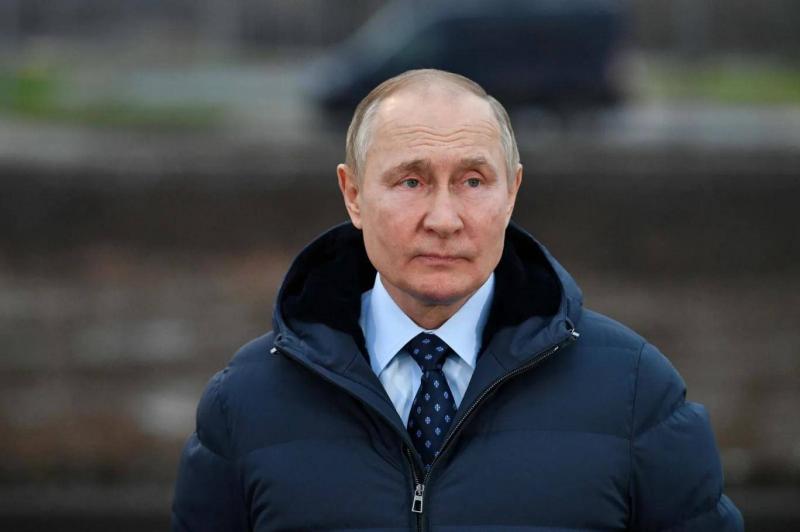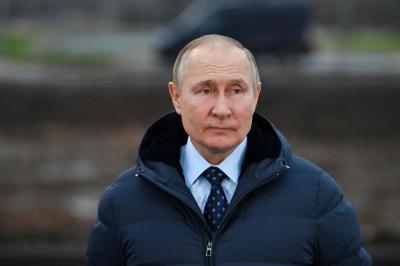Recently, Putin's army captured the city of Avdiivka after fierce battles, resulting in significant losses at this point which Putin sought to gain during his presidential election campaign. However, he failed to control other areas along the front that he aimed to annex into the occupied territories. Moreover, he was unable to protect the naval fleet in the Black Sea after it suffered heavy losses and could not safeguard Russian cities from drone attacks, especially after attempting to launch missile strikes on Ukrainian cities. Despite Putin's delayed attempts, particularly before the main election campaign to extend his presidency (the fifth or tenth) to fully seize Russia as the red tsar, he failed to convince the United States to engage in dialogue with him at the expense of the Europeans to stop the war under his terms, which he still declares despite the depletion his army and economy are undergoing due to this 'special operation,' as he insists on calling it.
The pressing question now is whether Putin is capable of convincing the West to end the war in Ukraine.
**Putin's Signals to the West**
Putin signaled to the West because he considers the months leading up to the presidential elections in Russia and the United States an opportunity to halt the war in Ukraine. During his speech at a conference of the United Russia party on December 17, The New York Times noted that the conditions proposed by the Russian president have become acceptable. Under these conditions, Russia retains the territories it occupied from Ukraine, and the Zelensky regime remains in power, with Russia ending its campaign under the equation of securing a land corridor in Crimea and annexing four Ukrainian regions, while claiming that the Ukrainian counteroffensive failure is a Russian victory. This signal sent to the West indicates Putin’s retreat from his previous demands, which called for the departure of Zelensky and his government, the non-admission of Ukraine into the European Union, and keeping NATO away from Russian borders.
**Field Situation on the Front**
Despite Russia's announcement of achieving a breakthrough in the Marinka sector, battles continue to ebb and flow, with Ukraine still defending its territory. Russia has been attempting to secure victories in the Donetsk regions and equalize the front line, leading to recent large-scale attacks on the Avdiivka, Marinka, and Kupiansk sectors in the Black Sea regions, Kherson, and Melitopol. However, it seems these attempts are met with fierce Ukrainian defenses, preventing Russia from expanding. Consequently, the number of casualties has risen, with both sides suffering significant losses, particularly on the Russian side.
Conversely, Russia adopts some European views, claiming that the West has abandoned Ukraine and accordingly, it will not be able to withstand. This has made it easier for Moscow to reassert its equations over Kyiv. This formed the crux of Putin's speech on November 14 last, lasting four hours before the global press, where he touched upon many points that included historical distortion. Firstly, he asserted that the war in Ukraine is an internal civil war, as if considering Russia and Ukraine to be one state. At the onset of the war, he termed it a special operation against Ukrainian extremists. Secondly, he claimed that the West contributed to Russia's betrayal since the revolution in 2014 with former president Viktor Yanukovych, which is inaccurate and a distortion of truth. Because his ally Yanukovych is the one who turned against him and went to sign the trade treaty in Vilnius, which had been prepared for over three years. Russia perceived these matters as if Yanukovych had informed Russia accordingly. Ukraine hoped this agreement would allow them to go to Europe for 90 days during which they could work without visas or residency permits, improving their economic lives that started to decline due to sanctions and blockades imposed on Ukraine preventing trade facilitation. This narrative is false. Putin knows he initiated the tightening of the blockade on Ukraine and imposed conditions aimed at controlling Ukrainian economic sites. Ukrainians rejected this and rose against the corrupt government that was considered pro-Russia.
**Attempting to Raise Russian Morale**
In his speech to the United Russia Party where he presented himself as a candidate for a fifth term on December 17, Putin also stated that he will work on rebuilding a strong, sovereign Russia that is respected by everyone. On these points, he conveyed a clear message to Europe that he will not wage war against Europe and NATO. Simultaneously, he praised former Secretary of State Henry Kissinger, signaling to the United States that he is ready for dialogue and agreement on Ukraine.
From the annual session with journalists and his nomination presentation before the ruling party, it's clear that Putin now faces two serious dilemmas: Firstly, he will not be able to control Ukraine amidst the fierce war that has cost him significant human casualties and massive economic sanctions. Secondly, he realizes that during the latest meeting in Brussels on December 14 and 15, EU members broadly embraced a slogan that every country considers itself free and democratic can fulfill the required conditions for joining the EU. The attendees unanimously voted in favor of Ukraine declaring it now eligible, and a timeline for its accession, along with Moldova's, may be set at the upcoming summit. This creates a protective cover for Ukraine, which is now on the threshold of the European Union.
Here, Putin, through this proposal, attempts to tell the West that he does not want to fight while also preparing, in the upcoming election period, to assure the Russian people—who have started feeling the effects of isolation and the NATO spread from the West, East, and North to Ukraine—that he does not desire to engage in battles against NATO, as this could lead to a destructive nuclear war.
Putin is somehow presenting an avenue for future dialogue between Ukraine and the West. Because all of his ambitions to wage war and threaten Europe have failed. Two years of war have demonstrated Ukraine's ability to withstand. It has also exposed Russia's role, which once deemed itself a polar state. Consequently, he is now attempting to initiate dialogue with the United States and Europe, heading into upcoming elections claiming he fought and achieved something. He sought to keep NATO away from the Donbas regions. Under this pretext, he is proposing a new equation, asking the West to maintain the status quo in the southern and eastern areas occupied by Russia as a reward for recognizing this, particularly in Crimea. In return, he acknowledges that he will not be able to keep Ukraine away from the European home, thus portraying himself as the victor who ended the war, and that the West acquiesced to his conditions.
In reviewing news published on Kremlin-backed and government-affiliated sites, it’s noted that the state attempts to slice clips from some journalistic analyses to present them to the Russian public, suggesting that the West is abandoning Ukraine and will not fund it. Hence, Ukraine will only endure for two months, attributed to Putin's capabilities fighting against the entire world. Thus, the narrative suggests that the West is bankrupt while Russia's military and financial capabilities remain very strong. For this reason, it has opened the door for negotiations with the West, Europe, and the United States on Russian terms.
Russia disseminates excerpts from specific Western newspapers that align with its pitch to promote the idea that the West is now abandoning Ukraine and its defeat is imminent. For example, on December 18, Russian media circulated excerpts from the Financial Times suggesting that Ukraine's allies in the West propose the option of freezing the conflict with Russia and presenting it as a victory. The Wall Street Journal also indicated that Western diplomats say Ukraine will not manage to continue the war without Western aid. According to Bloomberg, retired U.S. NATO chief General James Stavridis estimates that Ukraine will not succeed in waging a new war next year.




